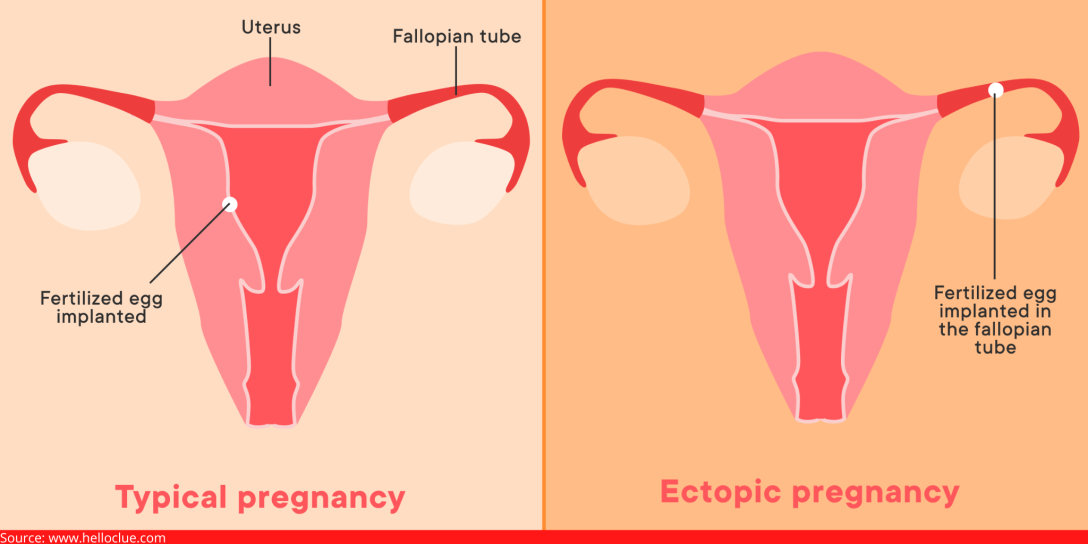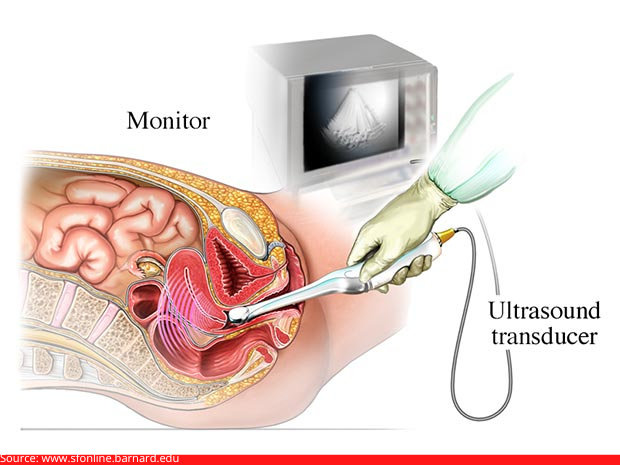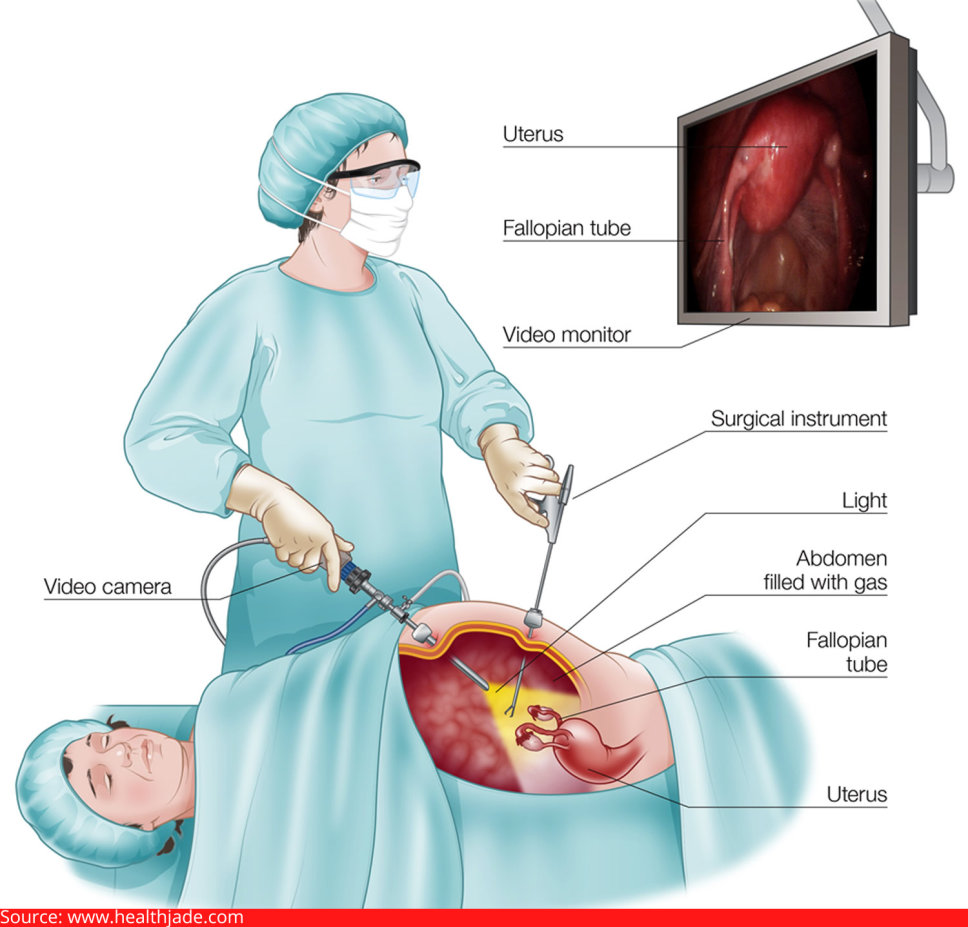Finding out that you are pregnant can be one of the greatest joys you can experience. It brings about a flurry of excitement and joy in the entire family. Undoubtedly then, any complications or irregular sensations can put you on a high alert for the possibility of an ectopic pregnancy.
An ectopic pregnancy means that the fertilized egg has implanted itself somewhere other than the inside of the uterus, explains Dr. Shweta Shah, a renowned gynecologist in Malad.
If you have had an ectopic pregnancy, you will most likely have a whole lot of questions. One of them will probably be if you can conceive again. And even if you can, is the likelihood of this problem recurring higher now?
The straightforward to both of these questions is – Yes.
- Yes, you can have a healthy and successful pregnancy post an ectopic pregnancy.
- Yes, the chances of you having yet another ectopic pregnancy are higher.
Read on to understand more about ectopic pregnancy, symptoms, and treatment options.
What is an ectopic pregnancy?

An ectopic pregnancy is a pregnancy that occurs outside the uterus. The most common type of ectopic pregnancy is when the fertilized egg implants in the fallopian tube. The fertilized egg then begins to grow in the tube, which is not designed to hold a growing baby. This can happen if the egg is not picked up by your fallopian tube or if the egg does not travel down the fallopian tube.
As the pregnancy advances, it can result in the fallopian tube rupturing. This can be a life-threatening event for both the mother and the baby. Although rare, ectopic pregnancies can also occur in the cervix, ovaries, or abdominal cavity.
Ectopic pregnancies cannot continue to full term and are usually diagnosed in the early stages of pregnancy.
Dr. Shweta Shah, an eminent gynecologist and obstetrician in Malad, Mumbai, says that while an ectopic pregnancy is a rare event, it is crucial to be aware of the signs and symptoms.
What are the signs and symptoms of an ectopic pregnancy?
You might not initially exhibit any signs of an ectopic pregnancy. They could appear to be quite comparable to a typical pregnancy, such as missing your period, tummy pain or discomfort, breast tenderness, etc.
Only about 50% of women having an ectopic pregnancy have all the 3 primary signs:
- vaginal bleeding
- a missed period
- abdominal pain
Additional indications of an ectopic pregnancy include:
- sharp, intense abdominal pain and cramps
- severe pain in your neck, shoulder, or rectum
- weakness and dizziness
- nausea and throwing up with pain
- pain and discomfort on 1 side of your body
If you experience any of these symptoms, it is essential to see a highly-experienced gynecologist like Dr. Shweta Shahright away for an expert diagnosis and treatment.
How is an ectopic pregnancy diagnosed?
An ectopic pregnancy is usually diagnosed by a combination of a pelvic exam, an ultrasound, and blood tests. Your doctor cannot detect an ectopic pregnancy only by a pelvic exam, which usually helps identify areas of soreness or an abnormal lump in your ovary or fallopian tube.
The following tests can diagnose an ectopic pregnancy:
A. Pregnancy test
The proficient fertility specialist, Dr. Shweta Shah, conducts the HCG (human chorionic gonadotropin) blood test to check the levels of HCG and determine whether you are pregnant, as the levels of this hormone rise during pregnancy. The HCG blood test will be conducted every few days until the ultrasound testing confirms or rules out an ectopic pregnancy, which is typically about 5 – 6 weeks following conception.
B. Ultrasound

- Transvaginal ultrasound: The doctor can pinpoint the precise placement of your pregnancy with the aid of transvaginal ultrasound. An instrument resembling a wand is inserted into your vagina to conduct this test. It generates images of your ovaries, uterus, and fallopian tubes using sound waves and transmits those images to the monitor.
- Abdominal ultrasound: The health professional will move an ultrasound wand over your belly during an abdominal ultrasound, which can be used to check for internal bleeding or affirm your pregnancy.
C. Further blood tests
A CBC (complete blood count) will be performed to look for anemia or other indicators of blood loss. If you are identified as having an ectopic pregnancy, the doctor may order tests to determine your blood type in case a transfusion is required.
What are the treatment options for an ectopic pregnancy?
The PCOD expert, Dr. Shweta Shah, explains that a fertilized egg cannot grow properly outside your uterus. It is crucial to remove the ectopic tissue to avoid potentially fatal complications. Dr. Shweta Shah is among the preferred gynecologists for people seeking treatment for ectopic pregnancy in Malad, Mumbai.
She will provide safe and effective treatment options through medication, laparoscopic surgery, or laparotomy surgery, depending on your symptoms and the time the ectopic pregnancy is identified.
1. Medication
Medical management usually involves the administration of methotrexateby injection.Methotrexate is a drug that suppresses cell growth while dissolving existing cells. It is typically used to treat an ectopic pregnancy if it is in the early stages and there is no excessive bleeding.
2. Laparoscopic surgery

Salpingostomy and salpingectomy are the 2 laparoscopic procedures frequently employed to address ectopic pregnancies. During these procedures, a small incision is created in the abdomen, either near or in your navel. The doctor uses a narrow tube called a laparoscope that is fitted with a light and camera lens to view the tubal area.
- Salpingostomy: In this technique, the ectopic pregnancy is eliminated while the fallopian tube is left to heal on its own.
- Salpingectomy: In this technique, both the ectopic pregnancy and fallopian tube are removed.
The well-known gynecologist, Dr. Shweta Shah, adds that the procedure employed depends on how much bleeding and damage has occurred and if the fallopian tube has ruptured. The other determining factor is whether the other fallopian tube shows any sign of prior damage or appears normal.
3. Emergency surgery
You might need emergency surgery with a wider incision if you have excessive bleeding or if your doctor detects a torn fallopian tube. In some circumstances, the tube can be spared. However, medical professionals frequently remove the ruptured tube. This surgery is referred to as a laparotomy.
Conclusion

Every expecting parent hopes and prays for a healthy and successful pregnancy. While there is no denying that having an ectopic pregnancy might be frightening, the good news is that your chances of getting pregnant and carrying it to term are very strong.
It is a common misconception that an ectopic pregnancy will make a woman infertile. However, this is not necessarily the case. While an ectopic pregnancy can cause damage to the fallopian tubes, this damage is often not permanent. Additionally, many women who have had an ectopic pregnancy are still able to conceive a child later on.
Although ectopic pregnancies are relatively rare, they can be serious medical condition. If you think you may be at risk, please speak with a top-notch gynecologist like Dr. Shweta Shah.
She can help you to make a plan to decrease your chances of having an ectopic pregnancy and help you to get the treatment you need if you do have one.


Its such ass you read my thoughts! You seem to ggrasp
so much approximately this, such as you wrote the ebook in it or something.
I beliieve that you simply could do with some p.c. to popwer
the message home a little bit, bbut other than that,
this is great blog. A fantastic read. I’ll definitely be back. https://zeleniymis.com.ua/